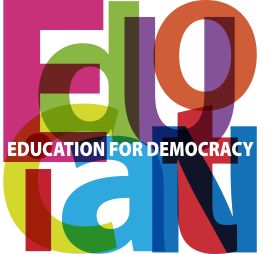Programme of the Education Department
Better education for better democracies - Education policy
The Education Department’s programme is determined by the Council of Europe’s member States. The objective of the programme is to help develop a culture of democracy through quality education.
The Council of Europe achieves this aim through intergovernmental co-operation (committees and working groups) and by favouring exchanges of information and innovative policies and practices (networks) at pan-European level, as well as peer-to-peer learning among member States (seminars, symposiums and conferences).
The main target groups of the programme are policy makers in ministries of education in member States and other public education actors from specialised agencies as well as higher education institutions and universities and non-governmental organisations.
Capacity-building and co-operation activities are carried out in several priority geographical areas that include Eastern Partnership countries and South-East Europe. Regional co-operation is fostered through summer academies for democracy and human rights in central Europe, South-East Europe and the Baltic States.
The programme is supported by the European Centre for Modern Languages in Graz, which implements Council of Europe policy in the enlarged partial agreement’s member States through the development and dissemination of best practice and innovation in language education, the Observatory on History Teaching in Europe, an enlarged partial agreement whose main purpose is to collect and make available factual information on the ways in which history is taught in all participating countries, and the European Wergeland Centre in Oslo, which develops education for intercultural understanding, human rights, awareness of democratic culture and the need for intercultural dialogue among professionals in all areas of education.
The Education Department operates through specific activities carried out by several international project teams that:
- co-operate with experts from over 50 European countries and draft policy recommendations;
- provide guidelines and toolkits for policy makers, curriculum developers, textbook authors and teacher trainers;
- collect good practices that are applicable in different contexts.
How it works
Following the adoption of the Council of Europe programme and budget by the Committee of Ministers, the Steering Committee for Education (CDEDU) prepares an operational programme focusing on key educational issues that require action. Several groups of experts are designated for each project. These groups include government experts nominated by national authorities and independent experts selected by the Council of Europe Secretariat.
How to get involved
Co-operate with your national ministry of education in order to take part as a representative of your country in the various project groups.
How to benefit from programme activities
Attend workshops and seminars, consult the different websites of the programme, organise national events for the dissemination of results and translate publications into national languages.
European Ministers of Education endorse declaration on COVID response
Conference of Ministers of Education under the Greek Chairmanship of the Committee of Ministers
Ministers of Education adopt declarations on digital citizenship education and on history teaching
New publication: 70 Years of education at the Council of Europe – Highlights
Education Department
Council of Europe
Agora Building
1, Quai Jacoutot
67075 Strasbourg Cedex
France



